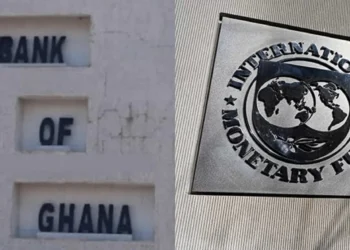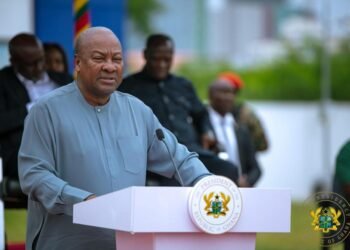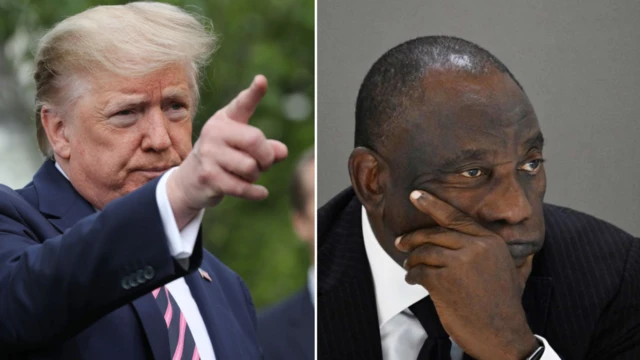The Democracy Hub, organizers of the #FixTheCountry movement, has issued a strong demand for the resignation of Ghana’s Minister of Lands and Natural Resources, Samuel Abu Jinapor, along with other high-ranking state officials.
The call comes in response to what the group describes as the government’s failure to effectively address the rampant illegal mining activities, commonly referred to as galamsey, which have led to severe environmental degradation and the depletion of Ghana’s natural resources.
At the forefront of the movement’s call is Naa Densuah, the convener of the Democracy Hub. She criticized the government for neglecting its responsibility to combat the growing galamsey crisis, which has not only decimated large portions of the country’s forest reserves but has also polluted vital water bodies.
According to Densuah, the situation reflects a broader systemic failure that places profit and greed above effective governance and the well-being of Ghana’s citizens.
“We are not just calling for an end to illegal mining; we are calling for the resignation of those who have allowed this crisis to fester,” Densuah stated in a passionate appeal.
Densuah’s statement emphasized that the issue of illegal mining goes beyond environmental concerns and is a symptom of a governance system that has become dysfunctional. She pointed out that while the environmental impacts of galamsey are devastating, the root cause is a corrupt political framework that allows the destruction to continue unchecked.
“We demand the immediate resignation of the following officials: the Minister for Environment, Science, Technology, and Innovation; the Minister for Lands and Natural Resources; the heads of the Environmental Protection Agency (EPA); the Minerals Commission; and the Forestry Commission. These are the individuals who have failed to protect our environment.”
Naa Densuah, convener of the Democracy Hub
Densuah’s call for accountability highlights the gravity of the situation and the role of key government agencies and officials in allowing the illegal mining activities to persist.
The Forestry Commission, EPA, and Minerals Commission are tasked with safeguarding Ghana’s natural resources, yet the widespread environmental damage caused by galamsey suggests a breakdown in their mandate.
Youth Urged to Lead Anti-Galamsey Fight
In her speech, Densuah called on the youth of Ghana to take a stand and lead the charge against galamsey and the corruption that enables it. She painted a stark picture of a future marred by environmental destruction if the issue remains unresolved and urged the younger generation to demand accountability and change.
“I say to you, rise. Young people of Ghana, rise and take your place at the forefront of this movement for change. Rise and demand a government that works for you, not against you.
“Rise and be the voice that says: *galamsey* must stop, corruption must end, and the future must be ours to shape.”
Naa Densuah, convener of the Democracy Hub
The #FixTheCountry movement has consistently attracted the attention of younger Ghanaians who are frustrated by widespread corruption, poor governance, and the declining state of the environment.
The calls for the resignation of key government officials come as part of a broader push by the #FixTheCountry movement to address systemic issues in governance. The movement has gained traction over the past few years, organizing protests and raising awareness around various social, economic, and environmental challenges facing the country.
Critics of the government argued that the response to galamsey has been insufficient, with crackdowns on illegal mining often being short-lived or ineffective. Many believe that high-level corruption within government institutions has enabled the continuation of illegal mining operations despite repeated promises to tackle the issue.
As illegal mining devastates the country’s natural resources and threatens its future, the demand for accountability and systemic reform grows louder. Whether this call will lead to tangible action remains uncertain, but the message is clear: the people of Ghana are demanding change.
READ ALSO: The Rise of Side Chick Culture in Ghana: A Closer Look at Divorce, Relationships




















